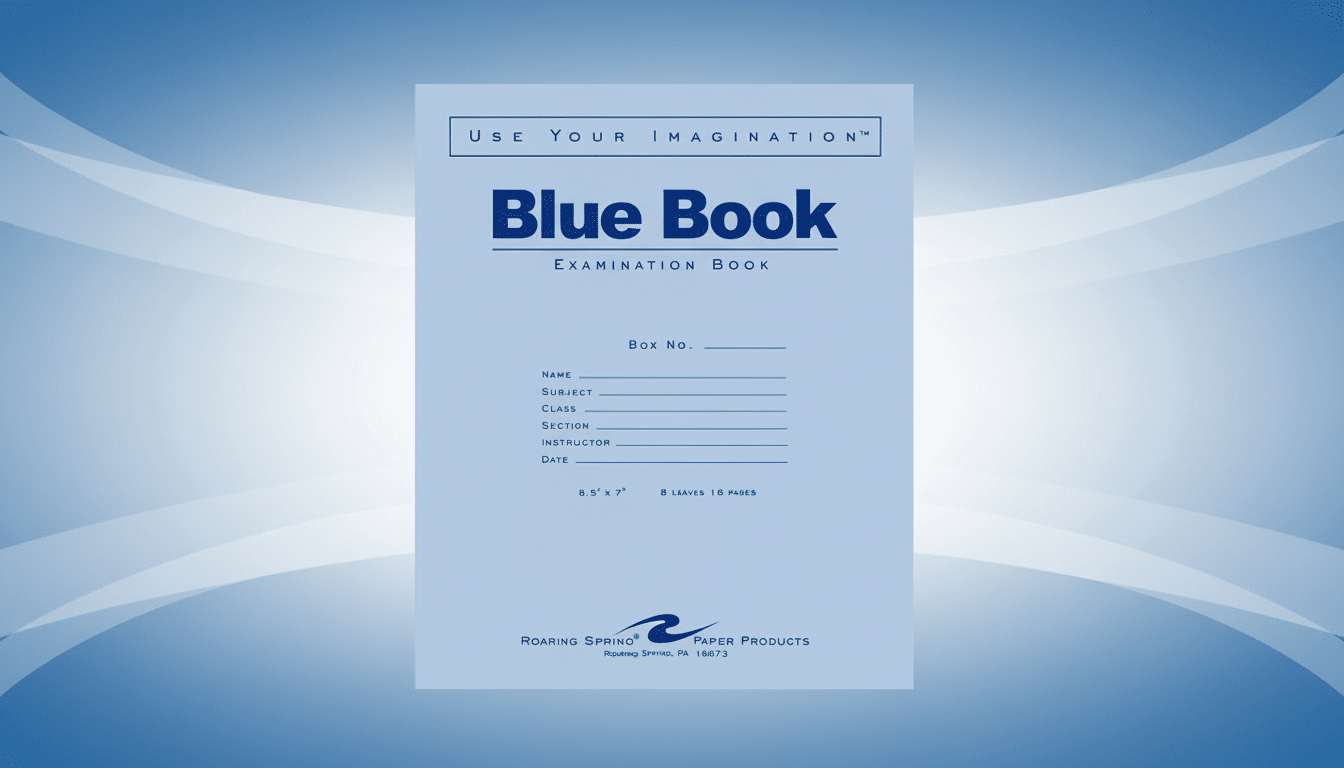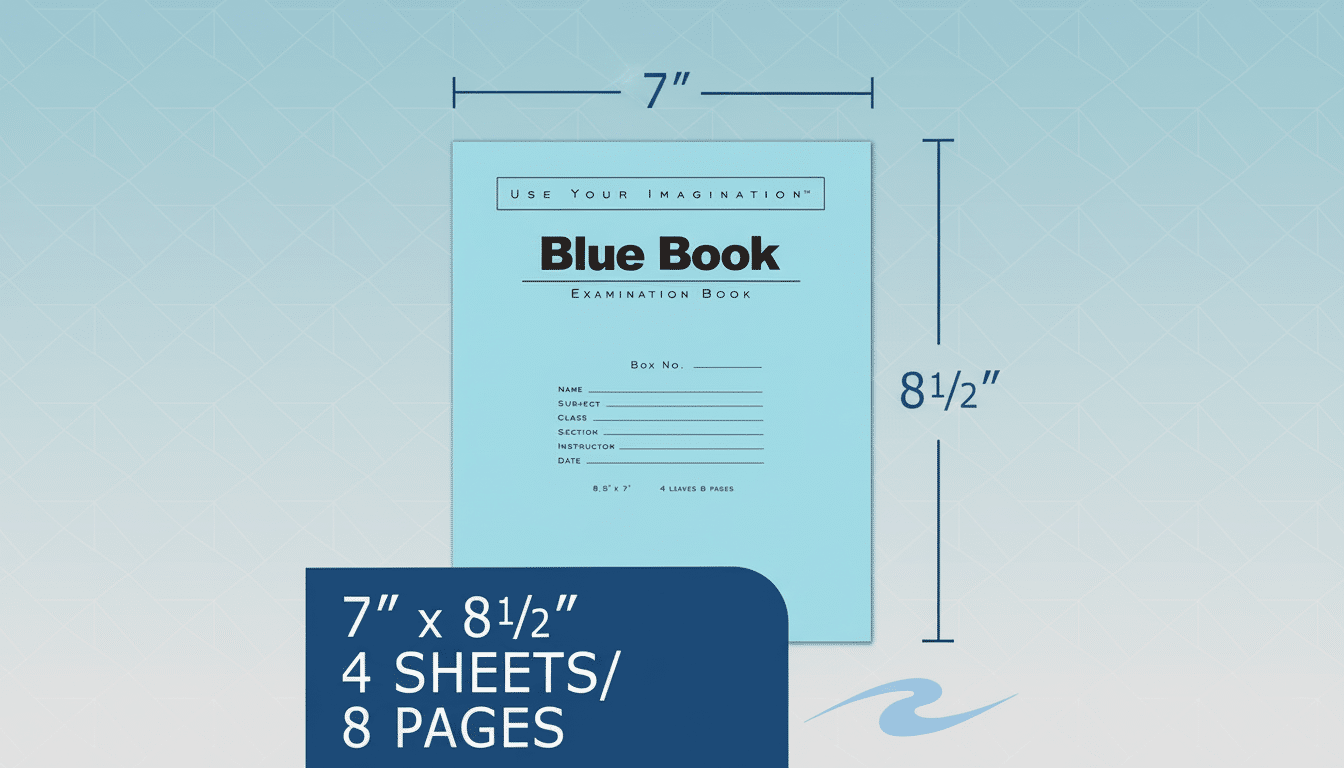Blue books return to the fold, humble and proud. As AI-assisted cheating grows more sophisticated, schools are scrambling to find ways of fighting technology with technology — in ways that don’t involve clunky proctoring services like remote test monitoring or, even more unappealing, making their students install Orwellian software on their computers.
Paper exams return as educators counter advanced AI cheating
Sales of blue books rose by more than two to one between 2022 and 2024, according to Circana numbers cited by The Economist — a period that overlapped with the rise of generative AI tools in classrooms. Campus bookstores and traditional vendors like Roaring Spring Paper Products have won fresh orders as instructors move back to timed, in-class writing from take-home essays.
- Paper exams return as educators counter advanced AI cheating
- Homework Is Getting Remade For The AI Era
- Why AI detection tools have limits and can misfire
- The global and financial dimensions of test security
- Equity concerns and the analog trade-offs of paper testing
- AI is learning too, but classrooms still balance its role
- What to watch next as assessment practices evolve

The reasoning is simple: responses written by hand, under supervision, are much more difficult to outsource to systems like ChatGPT or submit as AI-polished drafts that don’t necessarily represent a student’s capabilities. Blue books also leave an audit trail — rambly rewrites, crossed-out sentences, margin notes and all — which digital submissions don’t always trace.
Homework Is Getting Remade For The AI Era
Instructors are not merely piling up more paper; they are rewriting the playbook. One Intelligent survey, reported on by The Economist, found 66% of high school and college educators had modified assignments after students used AI. Another 76% have added or will add handwritten work, and only 14% now require or plan to require no handwriting, and 87% have added or will add oral presentations.
Concretely, that looks like in-class drafting followed by an oral defense, outputting prompt after prompt to references from the four walls of the classroom, and “fresh data” problems that switch up daily. At Rutgers University, one literature professor has students go see a play with an ending that is continually changed, to make it harder to pull canned AI or online analysis.
Why AI detection tools have limits and can misfire
Renewed popularity of the blue book is a response to faulty AI detection, at least in some portion. Academic integrity offices caution that so-called machine-writing detectors might flag multilingual writing, short answers, or polished prose as machine-authored. False positives are costly — distrust-inducing and time-consuming in appeals — so many teachers seek assessment designs that minimize the incentive and chance to cheat from the start.
Of course, handwritten exams aren’t a panacea, but they are a defensible baseline that moves the emphasis from policing to pedagogy. The approach adds to other features enabling academic integrity, including versioned prompts, collated notes taken before testing, and brief “viva” checks where students justify what they’ve done.
The global and financial dimensions of test security
It is not only the US that faces a challenge. Under the system implemented during China’s national university entrance exam season, leading domestic AI platforms restricted image recognition features for certain periods of time to prevent cheating — an indication of how test security has become a national priority in some countries.

There’s also a fiscal angle. Community colleges have faced waves of phony “bot” students who previously submitted coursework generated by artificial intelligence in order to secure financial aid, according to investigative reporting by The Voice of San Diego. At some schools, faculty estimated that more than 10% of the students were fake, adding new pressure for institutions to prove someone’s identity and performance in person.
Equity concerns and the analog trade-offs of paper testing
Paper testing isn’t frictionless. Accessibility teams are also addressing accommodation needs related to handwriting speed, motor challenges, and anxiety — which may affect neurodivergent students and those with disabilities. Schools are providing extra time, typed transcriptions from notes, and document cameras to be able to check for legibility.
Cost and logistics matter too. Blue books are cheap, but required purchases can quickly accumulate. A few campuses have started providing exam booklets and scanning completed pages for digital archiving and, for that matter, grading — preserving the assessment in analog form while creating a searchable record.
AI is learning too, but classrooms still balance its role
Even as testing turns analog, classrooms are not ditching AI. Three out of five teachers use AI in some form, a recent Gallup poll found, and most often for lesson planning, feedback rubrics, and differentiated practice. OpenAI recently added teacher-focused features such as curated prompt libraries and privacy controls via ChatGPT for Teachers, suggesting that structured, compliant use in schools is here to stay.
The new model is “AI for learning, paper for proving.” Students may be able to practice with AI by their side, but high-stakes demonstrations of knowledge increasingly take place with a pen, a prompt, and a proctor.
What to watch next as assessment practices evolve
Look for more hybrid formats: staged assessments, for example, that begin with an in-class handwritten draft and then proceed to a supervised revision and conclude with a quick oral check. Expect departments to coordinate policies across courses and for accreditors to consider integrity plans when evaluating programs.
There’s a broader tension ahead. As high-profile testing moves to safe digital ground, course-level tests are moving analog. Blue books are just a fix, but they’re also a statement: When authenticity is on the line, sometimes the most basic tools make the biggest impact.

